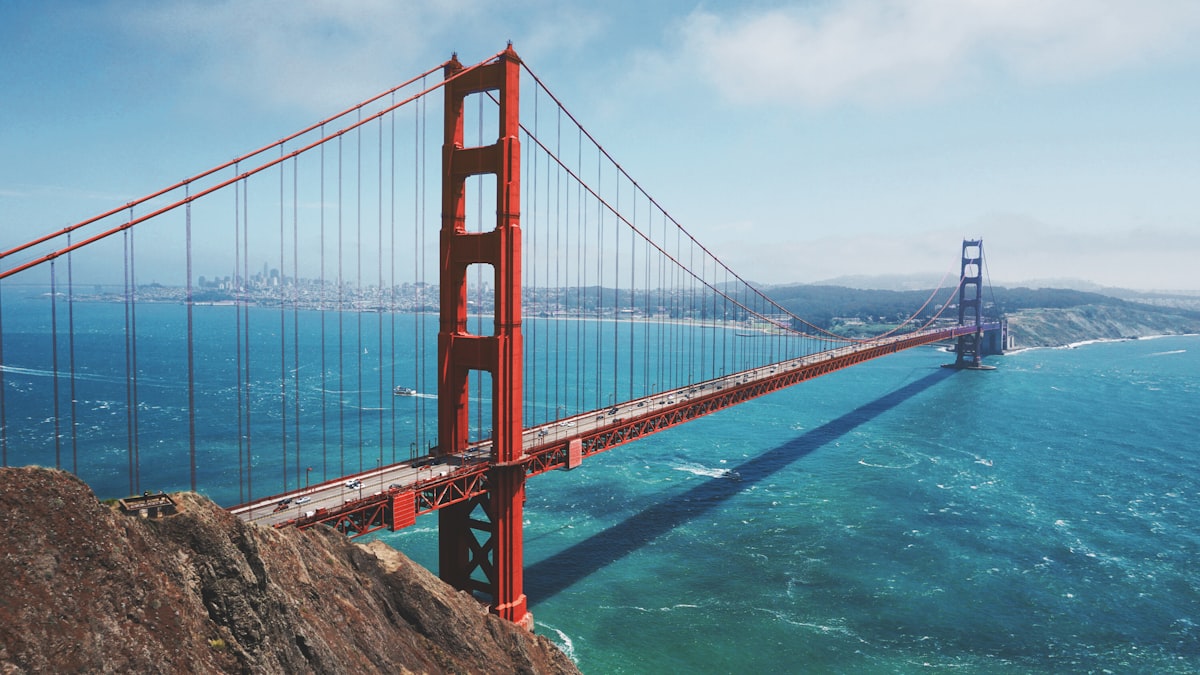|
Good morning, and thanks for spending part of your day with Extra Points. Your local message board and the Washington State fans in your life aren't the only people upset over USC and UCLA's decision to bounce for the Big Ten. On Friday, California Governor Gavin Newsom made it clear that he's very unhappy with how everything went down. Via friend of the newsletter Jon Wilner of the Mercury News: “Trust me when I say this,” Newsom told FOX 11 Los Angeles, “we’re not going to be looking into it. We already are looking into it, within minutes after reading about this in the newspaper.”
...
“No big deal, I’m the governor of the state of California. Maybe a bigger deal is I’m the chair of the UC regents. I read about it.
“Is it a good idea? Did we discuss the merits or demerits? I’m not aware that anyone did. So it was done in isolation. It was done without any regental oversight or support …
“I have strong opinions about this, for no other reason than as a member of the regents, we were never consulted, never asked for an opinion, and they didn’t even have the decency to provide (a) heads-up.”
Seems like a potentially significant development, no? The idea of politicians expressing opinions about conference realignment isn't new. My personal recent favorite was Connecticut Governor Ned Lamont insinuating the only reason the SEC hasn't added UConn is that THEY'RE TOO SACRED: But in recent memory, variations of governors and lawmakers going public with frustrations has happened in Washington State, Texas, Oklahoma, and elsewhere. Usually, it's just talk, but sometimes politicians have actually influenced where schools end up. I'm a Midwesterner, and I'm not going to pretend I know enough specifically about Gov. Newsom to know exactly why he's taking this particular position. Is he secretly a huge college football fan? Are there single-issue Stanford voters out there he's trying to court? How does this play in Elk Grove or Bakersfield? I don't know. So I called up some experts to find out.Dan Schnur is a professor at Cal, Pepperdine and USC, and a longtime political strategist. "It's pretty common for politicians to 'rally around the proverbial flag' whenever a local sports team does well, right? You'll typically see a mayor at a team's victory parade, after all.' he told me. Rather than speaking out to try and rally support (or raise money) specifically in the Bay Area, Schnur believed Newsom's frustration is actually shared by most Californians. "There may be some communities in LA that feel differently, but broadly, I believe this decision was pretty unpopular statewide." Expressing frustration with the process would be a pretty safe position to take, he believed. Dr. Tom Hogen-Esch, a professor of Political Science at Cal State Northridge, also shared the view that USC and UCLA's departure is mostly unpopular statewide, and that Newsom's reaction was unlikely to be a ploy to build support with any particular constituency. After defeating a recall challenge, Dr. Hogen-Esch believes that Newsom is a very safe political position, and not at risk of losing a re-election effort. If anything, Newsom has been trying to raise his political profile nationally. So if Newsom wasn't lashing out to try and score points with Stanford fans or other Pac-12 partisans, why is he so frustrated? Newsom played baseball at Santa Clara, but nobody I spoke to could recall him being an especially vocal college football fan or anything, so it seems less likely that his frustration was for sports reasons. Dr.Sarah Hill, a professor of Political Science at Cal State Fullerton, had another hypothesis"I honestly think this is just a governor with a bruised ego", she told me via email. "This is a huge decision that UCLA and USC made, and he’s mad they didn’t consult him and made this decision without him even knowing it was happening. I really do think it’s that straightforward and the kind of reaction you’d see from any governor in that position." Dr. Hogen-Esch also believed that leaving Newsome, and the UC system regents, out of the loop, could become an issue. "It could be potentially problematic to not have included the regents." So maybe there aren't Single Issue Cal Voters like there might be Single Issue State U Voters in say, Georgia or Ohio, and maybe Newsom wasn't super concerned about how hollering about UCLA football would play in Modesto. But could he actually do anything about it?The UC system apparently doesn't think so. Via Wilner's story: A spokesperson for the UC Office of the President told the Hotline that the regents have no authority to prevent UCLA’s move:
“There is no requirement for a decision from the University of California Board of Regents or the Office of the President.”
...
“UCLA leadership informed President Drake that discussions between UCLA and the Big Ten were occurring but he was not involved at all in those discussions or in any negotiations. UCLA remains best positioned to answer your questions as decisions related to athletics are formulated and executed at the campus-level.”
The Governor's office apparently disagrees. But Dr. Hill doesn't think it's likely that his office can actually stop the deal. Part of that is because California actually has three different university systems (community colleges, the Cal State system, and the UC system), and the state government's ability to influence the three systems isn't the same. "Because of a historical quirk, the legislature and governor have a lot of control over the community colleges and CSU, but the UCs are actually a constitutional entity, and so they have a lot more autonomy than the other two systems," she told me. Seven UC system regents are ex officio members, which include not just folks like the president and vice-president of the UC Alumni Associations, but also the California Governor, Lt. Governor, and Speaker of the Assembly. "In reality," Dr. Smith told me, "normally the governor doesn’t even attend their meetings." 18 of the other regents are appointed by the California Governor for 12 year terms. Dr. Hogen-Esch told me that while those individuals aren't directly controlled by Newsome, "the Governor could always call one of them up to let them know that he felt strongly about a certain issue, and learn on them in a way that all politicians do." The current Board of Regents chair and vice chair, for what it's worth, were appointed by previous California Governor Jerry Brown, not Newsom. The UC system does still rely on the California government for budget appropriations, and theoretically, the state could make it clear that they were upset by taking it out on UCLA in that process. UCLA could find itself facing an extra audit, for example, or state lawmakers could hold hearings about the Big Ten decision. And hey, "Since he's mad now, Gov. Newsom can show up [to a Board of Regents meeting] any time he wants to have a say.", Dr. Hill added. None of the three experts I spoke to were confident that Newsom, at least directly, could actually stop UCLA's decision. But not everybody was confident that Newsom's comments last week would be the final word from Sacramento about any of this. Dr. Hogen-Esch told me that "In my view, this story is not over."
This newsletter is brought to you in part by Microns.io Microns helps founders like you reach thousands of interested buyers to sell your startup, quickly and efficiently. Zero commission.Try Microns for free!
This newsletter is also brought to you by Snacklins. Try Snacklins' Savory Starter Pack with 10 snack size bags in 5 delicious flavors! Just $25 + FREE Shipping. Only valid for first-time customers.Check out the snacks!
To sponsor a future Extra Points newsletter, please email sales@extrapointsmb.com. For article ideas, newsletter feedback, FOIA tips, athlete NIL sponsorships and more, I'm at matt@extrapointsmb.com, or @MattBrownEP on Twitter, and @ExtraPointsMB on Instagram.
|



